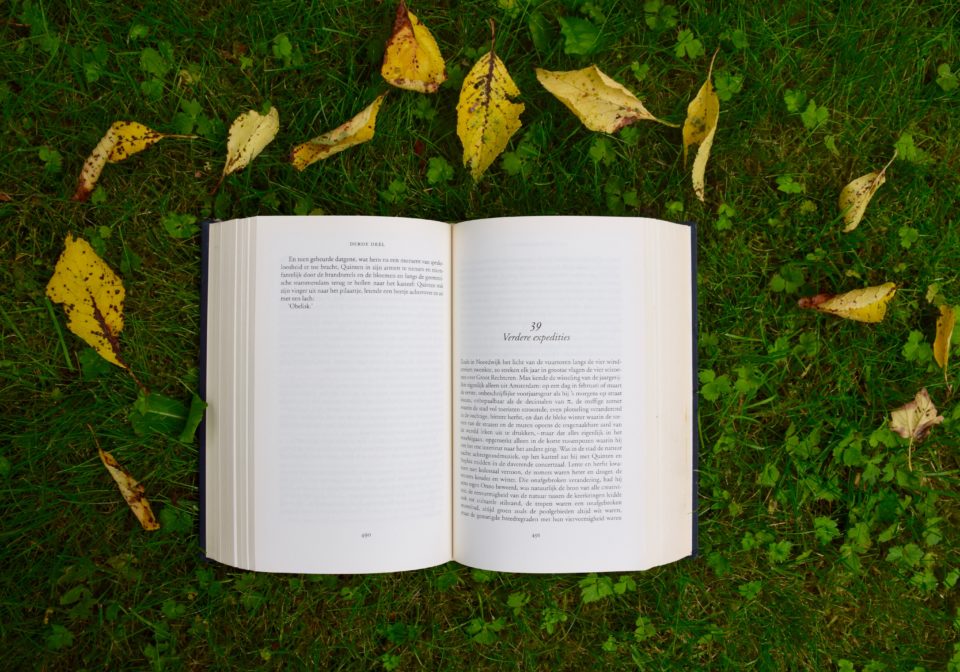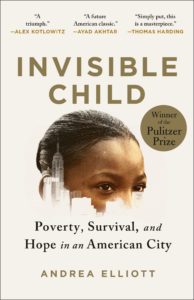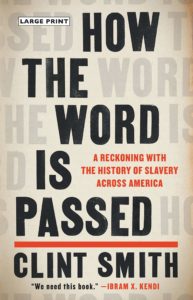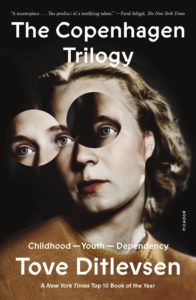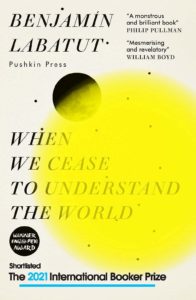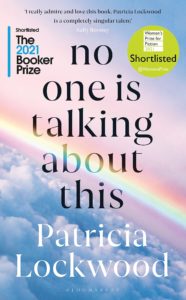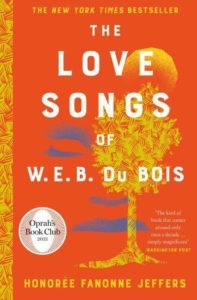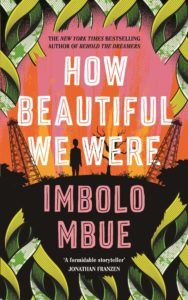Happy National book lovers’ day!
To celebrate we have a list of the best books according to the New York Times from 2021 and 2022 for all our book lovers, we hope you can find a book that is perfect for you.
How Beautiful We Were
By Imbolo Mbue
How Beautiful We Were is the second novel after Behold the Dreamers.
Set in the fictional African village of Kosawa, the novel narrates the story of a people living in fear amidst environmental degradation wrought by an American oil company.
Told through the perspective of a generation of children and the family of a girl named Thula who grows up to become a revolutionary.
Intimacies
By Katie Kitamura
An interpreter has come to The Hague to escape New York and work at the International Court. A woman of many languages and identities, she is looking for a place to finally call home. She’s drawn into simmering personal dramas, and she’s pulled into explosive political fires.
This woman is the voice in the ear of many, but what command does that give her, and
how vulnerable does that leave her? Her coolly impassioned views on power, love, and violence, are tested, both in her personal intimacies and in her role at the Court. She is soon pushed to the precipice, where betrayal and heartbreak threaten to overwhelm her; it is her drive towards truth, and love, that throws into stark relief what she wants from her life.
The Love Songs of W.E.B. Du Bois
By Honorée Fanonne Jeffers
The novel chronicles the journey of one American family, from the centuries of the colonial slave trade through the Civil War to our own tumultuous era.
Ailey is reared in the north in the city but spends summers in the small Georgia town of Chicasetta, where her mother’s family has lived since their ancestors arrived from Africa in bondage. From an early age, Ailey fights a battle for belonging that’s made more difficult by a hovering trauma, as well as the whispers of women—her mother, Belle, her sister, Lydia, and a maternal line reaching back two centuries—that urge Ailey to succeed in their stead.
To come to terms with her own identity, Ailey embarks on a journey through her family’s past, uncovering the shocking tales of generations of ancestors—Indigenous, Black, and white—in the deep South. In doing so Ailey must learn to embrace her full heritage, a legacy of oppression and resistance, bondage and independence, cruelty and resilience that is the story—and the song—of America itself.
No One Is Talking About This
By Patricia Lockwood
A woman who has recently been elevated to prominence for her social media posts travels around the world to meet her adoring fans. She is overwhelmed by navigating the new language and etiquette of what she terms “the portal,” where she grapples with an unshakable conviction that a vast chorus of voices is now dictating her thoughts. When existential threats begin to loom, she posts her way deeper into the portal’s void. An avalanche of images, details, and references accumulate to form a landscape that is post-sense, post-irony, post-everything. “Are we in hell?” the people of the portal ask themselves. “Are we all just going to keep doing this until we die?”
Suddenly, two texts from her mother pierce the fray: “Something has gone wrong,” and “How soon can you get here?” As real life and its stakes collide with the increasingly absurd antics of the portal, the woman confronts a world that seems to contain both an abundance of proof that there is goodness, empathy, and justice in the universe, and a deluge of evidence to the contrary.
When We Cease to Understand the World
By Benjamín Labatut. Translated by Adrian Nathan West.
A fast-paced, mind-expanding literary work about scientific discovery, ethics and the unsettled distinction between genius and madness. Albert Einstein opens a letter sent to him from the Eastern Front of World War I. Inside, he finds the first exact solution to the equations of general relativity, unaware that it contains a monster that could destroy his life’s work.
The great mathematician Alexander Grothendieck tunnels so deeply into abstraction that he tries to cut all ties with the world, terrified of the horror his discoveries might cause.
Erwin Schrödinger and Werner Heisenberg battle over the soul of physics after creating two equivalent yet opposed versions of quantum mechanics. Their fight will tear the very fabric of reality, revealing a world stranger than they could have ever imagined.
The Copenhagen Trilogy: Childhood; Youth; Dependency
By Tove Ditlevsen. Translated by Tiina Nunnally and Michael Favala Goldman.
Childhood tells the story of a misfit child’s single-minded determination to become a poet; Youth describes her early experiences of sex, work, and independence. Dependency picks up the story as the narrator embarks on the first of her four marriages and goes on to describe her horrible descent into drug addiction, enabled by her sinister, gaslighting doctor-husband.
Throughout, the narrator grapples with the tension between her vocation as a writer and her competing roles as daughter, wife, mother, and drug addict, and she writes about female experience and identity in a way that feels very fresh and pertinent to today’s discussions around feminism.
How the Word Is Passed: A Reckoning With the History of Slavery Across America
By Clint Smith
How the Word Is Passed It is the story of the Monticello Plantation in Virginia, the estate where Thomas Jefferson wrote letters espousing the urgent need for liberty while enslaving over 400 people on the premises. It is the story of the Whitney Plantation, one of the only former plantations devoted to preserving the experience of the enslaved people whose lives and work sustained it. It is the story of Angola Prison in Louisiana, a former plantation named for the country from which most of its enslaved people arrived and which has since become one of the most gruesome maximum-security prisons in the world. And it is the story of Blandford Cemetery, the final resting place of tens of thousands of Confederate soldiers.
Invisible Child: Poverty, Survival and Hope in an American City
By Andrea Elliott
Invisible Child follows eight dramatic years in the life of Dasani Coates, a child with an imagination as soaring as the skyscrapers near her Brooklyn homeless shelter. Born at the turn of a new century, Dasani is named for the bottled water that comes to symbolize Brooklyn’s gentrification and the shared aspirations of a divided city. As Dasani grows up, moving with her tight-knit family from shelter to shelter, this story goes back to trace the passage of Dasani’s ancestors from slavery to the Great Migration north. By the time Dasani comes of age, New York City’s homeless crisis is exploding as the chasm deepens between rich and poor.
In the shadows of this new Gilded Age, Dasani must lead her seven siblings through a thicket of problems: hunger, parental drug addiction, violence, housing instability, segregated schools, and the constant monitoring of the child-protection system. When, at age thirteen, Dasani enrolls at a boarding school in Pennsylvania, her loyalties are tested like never before. As she learns to “code switch” between the culture she left behind and the norms of her new town, Dasani starts to feel like a stranger in both places. Ultimately, she faces an impossible question: What if leaving poverty means abandoning the family you love?
On Juneteenth
By Annette Gordon-Reed
On Juneteenth provides a historian’s view of the country’s long road to Juneteenth, recounting both its origins in Texas and the enormous hardships that African-Americans have endured in the century since, from Reconstruction through Jim Crow and beyond.
Combining personal anecdotes with poignant facts gleaned from the annals of American history, Gordon-Reed shows how, from the earliest presence of Black people in Texas to the day in Galveston on June 19, 1865, when Major General Gordon Granger announced the end of legalized slavery in the state, African-Americans played an integral role in the Texas story.
Reworking the traditional “Alamo” framework, she powerfully demonstrates, among other things, that the slave- and race-based economy not only defined the fractious era of Texas independence but precipitated the Mexican-American War and, indeed, the Civil War itself.
In its concision, eloquence, and clear presentation of history, On Juneteenth vitally revises conventional renderings of Texas and national history.
Red Comet: The Short Life and Blazing Art of Sylvia Plath
By Heather Clark
Clark presents new materials about Plath’s scientist father, her juvenile writings, and her psychiatric treatment, and evokes a culture in transition in the mid-twentieth century, in the shadow of the atom bomb and the Holocaust, as she explores Sylvia’s world: her early relationships and determination not to become a conventional woman and wife; her conflicted ties to her well-meaning, widowed mother; her troubles at the hands of an unenlightened mental-health industry; and her Cambridge years and thunderclap meeting with Ted Hughes, a true marriage of minds that would change the course of poetry in English.
The Naked Don’t Fear the Water
By Matthieu Aikins
In 2016, a young Afghan driver and translator named Omar makes the heart-wrenching choice to flee his war-torn country, saying goodbye to Laila, the love of his life, without knowing when they might be reunited again. He is one of millions of refugees who leave their homes that year.
Matthieu Aikins, a journalist living in Kabul, decides to follow his friend. In order to do so, he must leave his own passport and identity behind to go underground on the refugee trail with Omar. Their odyssey across land and sea from Afghanistan to Europe brings them face to face with the people at heart of the migration crisis: smugglers, cops, activists, and the men, women and children fleeing war in search of a better life. As setbacks and dangers mount for the two friends, Matthieu is also drawn into the escape plans of Omar’s entire family, including Maryam, the matriarch who has fought ferociously for her children’s survival.
In Love
By Amy Bloom
Amy Bloom began to notice changes in her husband, Brian: He retired early from a new job he loved; he withdrew from close friendships; he talked mostly about the past. Suddenly, it seemed there was a glass wall between them, and their long walks and talks stopped. Their world was altered forever when an MRI confirmed what they could no longer ignore: Brian had Alzheimer’s disease.
Forced to confront the truth of the diagnosis and its impact on the future he had envisioned, Brian was determined to die on his feet, not live on his knees. Supporting each other in their last journey together, Brian and Amy made the unimaginably difficult and painful decision to go to Dignitas, an organization based in Switzerland that empowers a person to end their own life with dignity and peace.
In this heartbreaking and surprising memoir, Bloom sheds light on a part of life we so often shy away from discussing–its ending.
The School for Good Mothers
By Jessamine Chan
Frida Liu is struggling. She doesn’t have a career worthy of her Chinese immigrant parents’ sacrifices. What’s worse is she can’t persuade her husband, Gust, to give up his wellness-obsessed younger mistress. Only with their angelic daughter Harriet does Frida finally feel she’s attained the perfection expected of her. Harriet may be all she has, but she’s just enough.
Until Frida has a horrible day.The state has its eyes on mothers like Frida — ones who check their phones while their kids are on the playground; who let their children walk home alone; in other words, mothers who only have one lapse of judgement. Now, a host of government officials will determine if Frida is a candidate for a Big Brother-like institution that measures the success or failure of a mother’s devotion. Faced with the possibility of losing Harriet, Frida must prove that she can live up to the standards set for mothers — that she can learn to be good.

